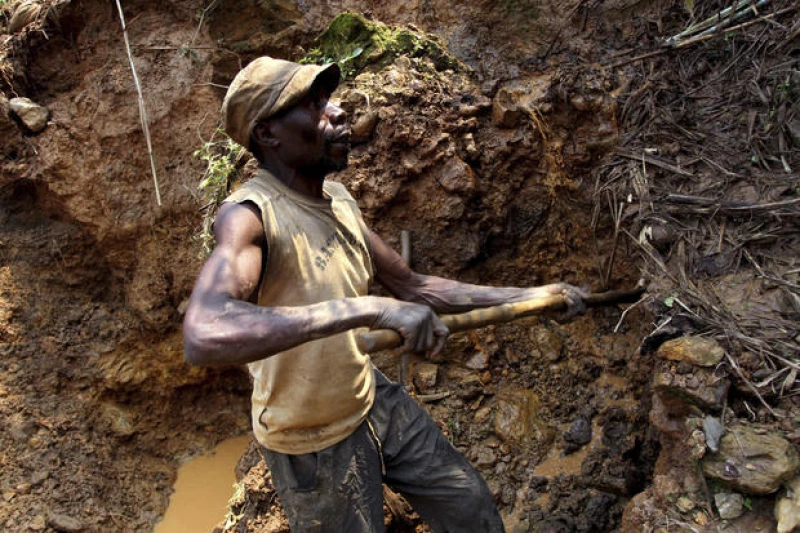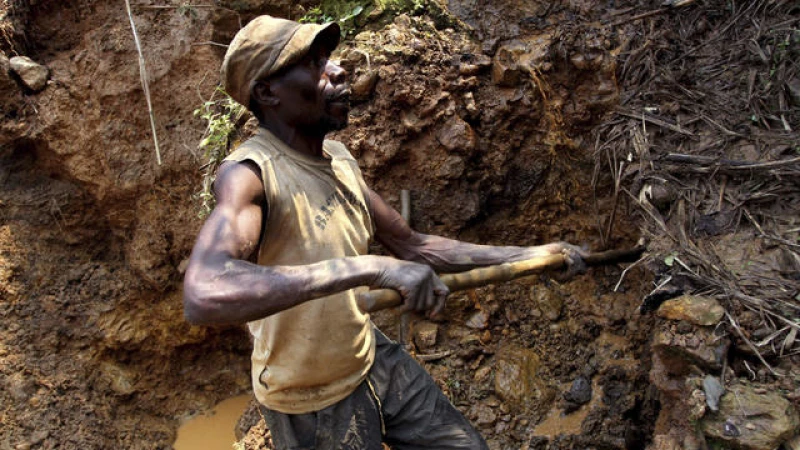Johannesburg — The government of the Democratic Republic of Congo has issued a stern warning to U.S. tech giant Apple regarding the use of minerals from the country in its products. Legal action is being threatened by the DRC over what it claims are minerals being "illegally exploited" and incorporated into Apple's devices.
The DRC government, with the representation of U.S. and French lawyers, delivered a letter to Apple on April 22, cautioning the company about the potential legal consequences of its alleged practices. The letter asserts that Apple is acquiring minerals that have been smuggled out of the DRC and then routed through Rwanda to conceal their origin before entering the global technology supply chain.
In response to these accusations, the DRC government is actively investigating the situation and considering various legal options to address the issue at hand.
Within the letter addressed to Apple's CEO Tim Cook, a series of inquiries have been outlined by the DRC, expressing concerns about the presence of "blood minerals" in Apple's supply chain. The government demands a response to these questions within a three-week timeframe. Similar letters have also been dispatched to two of Apple's subsidiaries in France, with the same deadline for responses.

Apple's Claims on Conflict-Free Minerals Questioned
Recent scrutiny has been cast on Apple's assertions regarding the sources of the minerals used in its products. The company has stated that it ensures the tin, tungsten, tantalum, and gold it utilizes are conflict-free and do not contribute to funding wars. However, doubts have been raised about the lack of concrete evidence supporting these claims.
When questioned by CBS News, Apple did not provide direct answers regarding how it tracks these critical minerals throughout its supply chain to verify their origins. The company mentioned that third-party organizations are responsible for conducting this verification process on its behalf.
Apple has confirmed that every smelter and refiner in its supply chain underwent independent, third-party minerals audits for tin, tungsten, tantalum, and gold. The company stated that they took action by removing 14 refiners and smelters from their supply chain last year when issues were identified.
Despite being recognized as leaders in responsible sourcing, Apple acknowledged that their work is ongoing. According to their most recent annual conflict minerals report, they found no evidence that any smelters or refiners in their supply chain financed or benefited armed groups in the DRC or neighboring countries.
The mineral-rich Great Lakes region of the DRC has been plagued by violence since the 1990s. In late 2021, the M23 rebels, also known as the March 23 Movement, emerged as a significant player among local militias.

Various entities, including the United Nations, Western governments, and the DRC, have accused Rwanda of supporting M23 to exploit the mineral resources of its neighboring country. Rwanda's government has dismissed these allegations as unfounded and speculative, with spokeswoman Yolande Makolo calling them baseless.
The narrative surrounding the exploitation of the DRC's resources is not new. A CBS News investigation in 2018 delved into the intricate supply chain of cobalt extracted from the mines in the DRC. The investigation uncovered children laboring in these mines to extract cobalt, a vital mineral used in modern batteries for a wide array of devices such as cellphones, laptops, and electric vehicles.
"Words are insufficient to capture the gravity of the situation in the DRC, and it's imperative that action is taken," remarked Robert Amsterdam, one of the attorneys representing the DRC government. "We must confront what is essentially a global deception - the notion that a country like Rwanda, lacking in mineral resources, can be held accountable for exporting such substantial quantities."
Amsterdam emphasized, "The DRC possesses a near monopoly on the essential components of the green revolution. The recent reelection of the DRC president underscores the importance of effectively managing the mineral resources as a key agenda item moving forward."
Regarding the lawsuit filed, Amsterdam noted that while Apple is not the sole major tech company suspected of utilizing ethically questionable minerals in its products, the focus was on the U.S. tech giant due to its reputation for upholding principles and morality. "Apple prides itself on ethical standards - they have the potential to act courageously and do what is right. This issue transcends mere legal action; it pertains to sovereignty," Amsterdam concluded.
"After posing specific questions to Apple, our team is now exploring various legal avenues in the U.S. and France," mentioned William Bourdon, a lawyer based in Paris, in an interview with CBS News regarding the next course of action.
"This move is groundbreaking in many aspects, as the [DRC] government has made a firm decision to hold parties accountable," Amsterdam commented.
Bourdon expressed his lack of knowledge about any other government contemplating legal action on a global supply chain issue.
"This is truly unprecedented," he remarked. "We are just scratching the surface of a significant development. Anticipate more to unfold."







